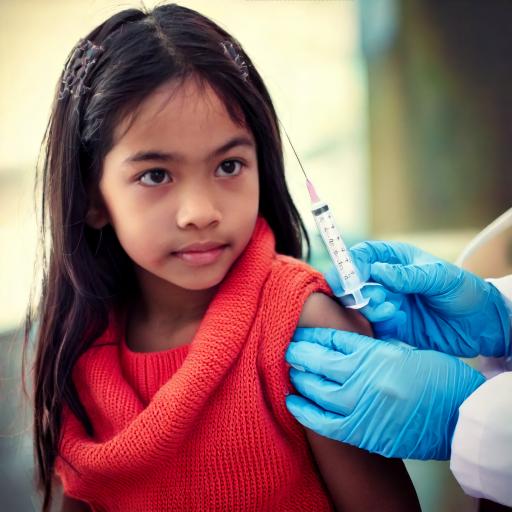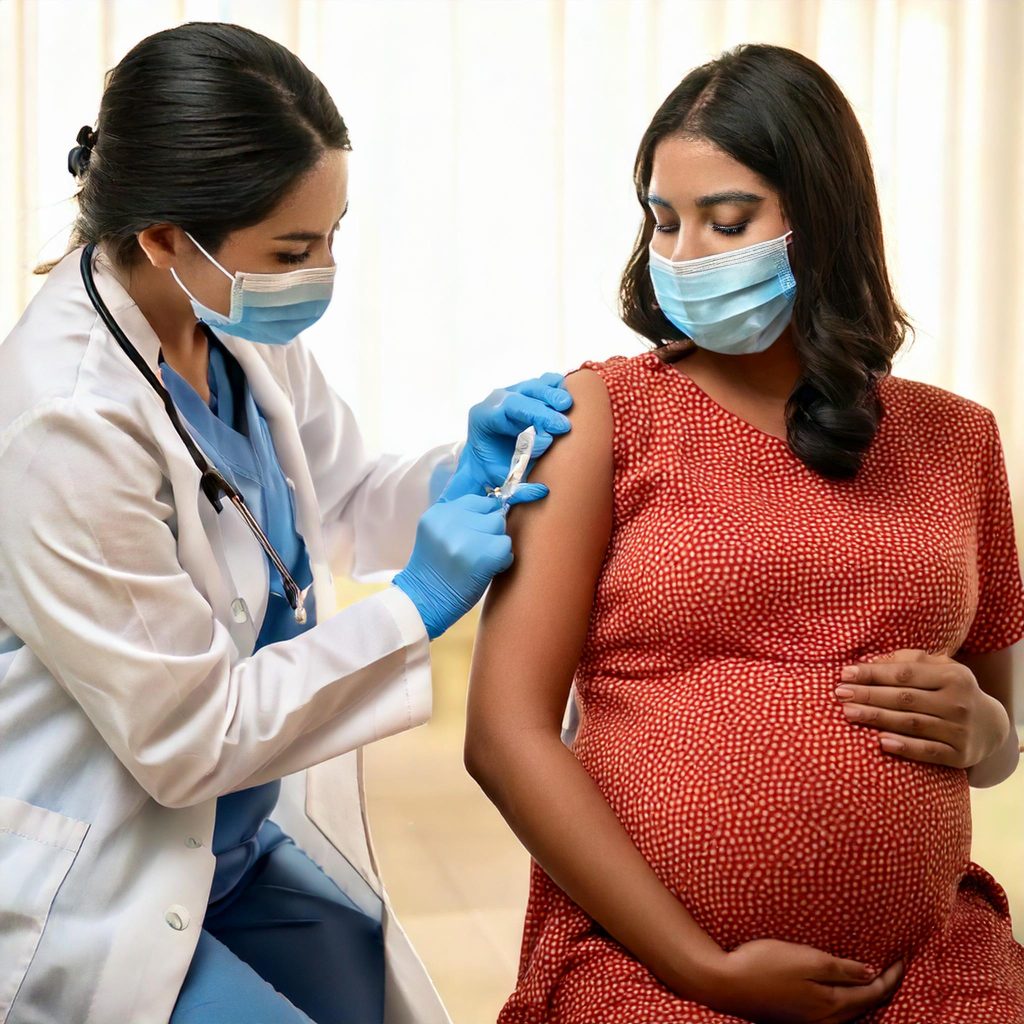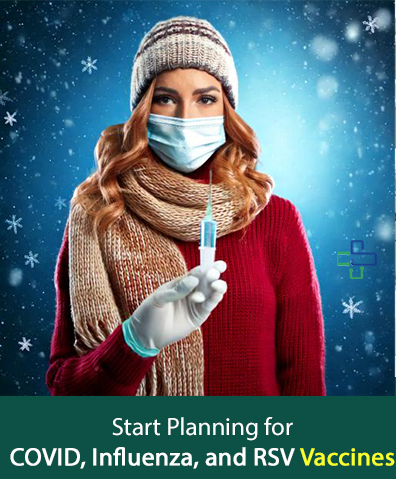As the colder months approach, the risk of infectious diseases like COVID-19, seasonal influenza, and Respiratory Syncytial Virus (RSV) increases significantly. Protecting yourself and your loved ones with timely vaccinations is essential to reduce the chances of severe illness, hospitalizations, and complications. While these vaccines play a critical role in safeguarding public health, timing your shots is just as important.
In this guide, we’ll discuss when and why you should plan your COVID, RSV and influenza vaccines to ensure maximum protection throughout the year. With expert recommendations and actionable insights, now is the time to plan your vaccine strategy for optimal immunity.

1. The Importance of Vaccines: COVID, Influenza, and RSV
Why You Need These Vaccines
Each year, millions of people are affected by COVID-19, influenza, and RSV, all of which can cause severe complications, especially in vulnerable populations like older adults, young children, and individuals with pre-existing health conditions. These viruses often have overlapping symptoms but require separate vaccinations for adequate protection.
While influenza and RSV tend to peak in the fall and winter months, COVID-19 remains a year-round concern, with potential seasonal surges. Vaccines not only help prevent severe illness but also reduce the overall transmission of these viruses, protecting both you and the community.
2. When to Get Your Influenza Vaccine
Timing Your Flu Shot
The influenza vaccine is best administered before flu season begins, ideally in late September or October. This ensures that your body has enough time to develop immunity before the virus starts spreading widely. According to the CDC, influenza season typically peaks between December and February, so getting vaccinated early is crucial to ensure protection throughout the season.
However, if you miss the early window, it’s still beneficial to get vaccinated later in the season. The vaccine takes about two weeks to become fully effective, so aim to get your flu shot as soon as possible if you haven’t already.
3. Planning Your COVID-19 Vaccine and Boosters
Staying Updated with COVID-19 Vaccines
As COVID-19 continues to evolve with new variants, staying up to date with your vaccines and boosters is essential. The COVID-19 booster is typically recommended during the fall, aligning with influenza season. Experts suggest getting your COVID-19 shot in early fall, around September or October, to ensure your immunity is at its peak during the colder months when indoor gatherings increase transmission risks.
For those who are at high risk, including older adults and individuals with chronic health conditions, getting the latest booster shot can provide an extra layer of protection against severe illness.
4. RSV Vaccine: Who Needs It and When?
The New RSV Vaccine
In recent years, RSV (Respiratory Syncytial Virus) has gained more attention due to its severe impact on infants, the elderly, and those with compromised immune systems. In 2023, the first RSV vaccine was approved for adults aged 60 and older, offering protection against a virus that can cause serious respiratory issues.
RSV typically circulates during the fall and winter months, making early fall (September or October) the ideal time to get vaccinated, especially for older adults and those in long-term care settings.
5. Can You Get COVID, Influenza, and RSV Vaccines Together?
Combining Vaccinations for Convenience
The good news is that it’s safe to receive the COVID-19, influenza, and RSV vaccines during the same visit. This approach is convenient for people looking to minimize doctor visits while ensuring full protection. However, it’s important to consult with your healthcare provider to determine the best vaccination schedule based on your age, health status, and risk factors.
While side effects like fatigue, soreness, or mild fever may be experienced, these typically resolve within a few days, and the protection offered far outweighs the temporary discomfort.
6. Special Considerations for High-Risk Groups
Vaccination Strategies for High-Risk Individuals
Certain groups, including pregnant women, older adults, young children, and individuals with chronic illnesses, are more vulnerable to severe complications from COVID-19, influenza, and RSV. These individuals should prioritize vaccinations early in the season and follow specific guidelines provided by healthcare professionals.
- Pregnant women: The influenza and COVID vaccines are highly recommended during pregnancy as they protect both the mother and the baby. The flu vaccine can be administered at any point during pregnancy, while COVID-19 boosters are recommended in the second or third trimester.
- Children: Infants and toddlers are particularly susceptible to RSV, and ensuring timely vaccination or preventive measures is crucial during the fall and winter months.

7. How to Maximize Vaccine Effectiveness
Pro Tips for Stronger Immunity
While vaccines are your first line of defense against COVID, influenza, and RSV, there are additional steps you can take to maximize your immunity:
- Stay Hydrated: Drinking plenty of water helps your body respond better to vaccinations.
- Eat a Balanced Diet: A diet rich in fruits, vegetables, and lean proteins can help strengthen your immune system.
- Rest: Ensure you get enough sleep before and after getting vaccinated to help your body recover and build immunity.
- Monitor Side Effects: Mild side effects are common after vaccination, but if you experience anything more severe, contact your healthcare provider.
Conclusion: Protect Yourself This Season, Start Now!
In preparation for the upcoming fall and winter, now is the perfect time to plan your COVID, influenza, and RSV vaccines. Each vaccine plays a crucial role in protecting you from serious respiratory infections, and the sooner you get vaccinated, the better prepared you’ll be. Whether you’re in a high-risk group or simply want to stay healthy, taking proactive steps to schedule your vaccinations will ensure you’re protected as we head into colder months.
At SimpleeKare Health, we’re here to help you stay on top of your vaccinations. Contact us today to schedule an appointment for your COVID, influenza, or RSV vaccine and take control of your health this season.

Leave a Reply